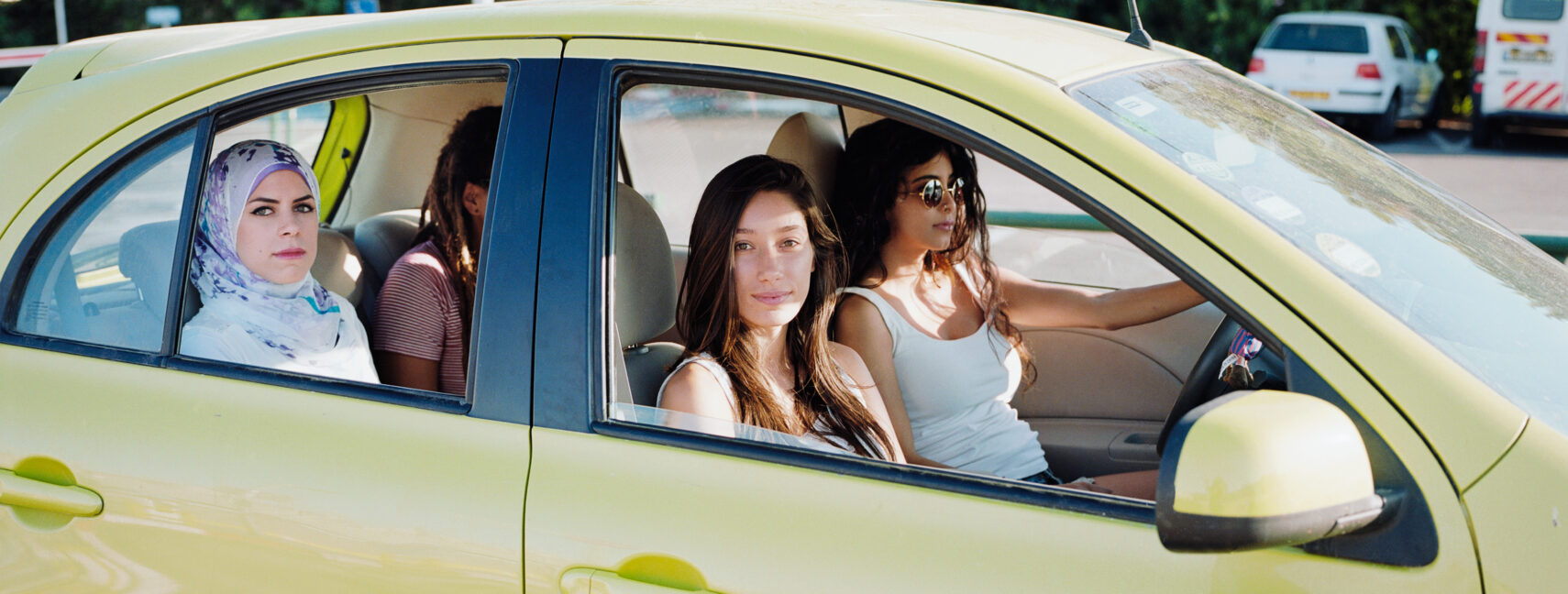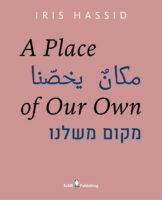This exhibition has been organised in cooperation with the Jewish Museum of Amsterdam. The exhibition at the Jewish Museum Amsterdam was initiated by Victor Levie and developed in collaboration with Iris Hassid.
The exhibition “A Place of Our Own” focuses on the lives of four young Palestinian women. They are Israeli citizens, living and studying in Tel Aviv, and setting out from there on their professional lives, in Israel and elsewhere. Israeli photographer Iris Hassid (b. 1965) began photographing them in 2014 and talking to them about their ambitions, friendships, families, and political-social involvement.
The photographs on display, films, and quotes from many conversations show the lives of these young women, since leaving their Arab towns and villages to go to university in Tel Aviv. And they reflect the complexities of an existence as a Palestinian woman in Tel Aviv and as a woman with ambitions in Israeli society.
Staff
Curator and project management Hohenems
Anika Reichwald
Curator of the original exhibition at the Jewish Museum Amsterdam
Judith Hoekstra
Exhibition architecture and graphics
Victor Levie, MV LevievanderMeer, Graphic and Exhibition Design (Amsterdam)
Production management
atelier stecher, Roland Stecher, Thomas Matt (Götzis)
Film director and producer
Iris Hassid (Tel Aviv)
Director of photography
Amit Chachamov (Tel Aviv)
Editor
Tamar Katz (Tel Aviv)
Original soundtrack
Zoe Polanski (Tel Aviv)
Color grading
Ido Karilla (Tel Aviv)
Post production
Edit Studios (Tel Aviv)
Sound design
Michal Gideon and Andy Rapaporte (Tel Aviv)
Graphic design
Merav Shacham (Tel Aviv)
Archive management and exhibit conservator
Raphael Einetter (Hohenems)
Outreach
Angelika Purin, Judith Niederklopfer-Würtinger, Claudia Klammer (Hohenems)
Press and public relations
Birgit Sohler (Hohenems)
Translations
Tim Beeby & Sabine Bürger (Essen)
Reem Ghanayam (Bakh El-Grabih)
Safra Nimrod (Tel Aviv)
Office
Martina Steiner (Hohenems)
Photo production
The Print House (Tel Aviv)
Zwaan Fotografie & Presentatie (Maasland)
Whatsapp animation
Tungsten Studio (Amsterdam)
Exhibition installation
Dietmar Pöschko (Hohenems), Dietmar Pfanner (Andelsbuch)
Exhibition construction
Raidel Tischlerei (Mäder)
Painting work
Malerwerkstätte Alfons Mathis (Hohenems)
Exhibition text and label production
Elograph (Röthis)
Printed material
Druckerei Thurnher (Rankweil)
Media partners
ORF Ö1
Vorarlberger Nachrichten
Titelbild (Ausschnitt): “A Place of Our Own” © Iris Hassid



